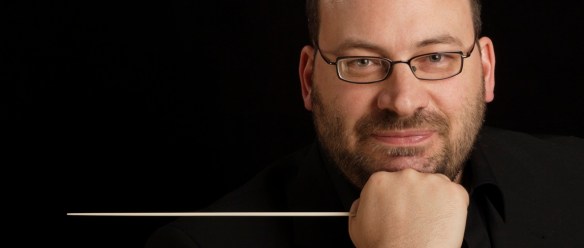
April Fredrick (soprano), Members of the English Symphony Orchestra / Kenneth Woods
Mahler arr. Stein Symphony no.4 in G major (1900) – Opening
Wagner arr. Woods Siegfried Idyll (1870)
Humperdinck arr. Woods Hänsel und Gretel (1892) – Der Kleine Sandmann; Abendsegen.
Schubert arr. Woods Die Forelle – Lied and Variations, D550/D667 (1817/19)
Mahler arr. Woods Das Irdische Leben (1892)
Schubert arr. Woods Der Tod und das Mädchen – Variations & Lied, D531/D810 (1817/24)
Mahler arr. Stein Das Himmlische Leben (1892/1900)
Wyastone Concert Hall, Monmouth
Friday 16 October (review of the online broadcast)
Written by Richard Whitehouse
The English Symphony Orchestra’s Music from Wyastone online series continued this evening with an ingenious programme centred on Childhood, as depicted in music from the latter 19th century, and featuring chamber arrangements by the orchestra’s principal conductor Kenneth Woods.
The initial bars of Mahler’s Fourth Symphony, heard in the now relatively familiar reduction by Erwin Stein, led seamlessly into Siegfried Idyll – here arranged for identical forces and so affording even greater prominence to Wagner’s felicitous writing for woodwind. In this never rushed account, Woods underlined the methodical aspect of music whose birthday association and ethereal aura rather bely its formal ingenuity. There were no qualms over instrumentation, even if the trumpet’s timely presence might have made the ecstatic climax seem even more so.
 April Fredrick (whose impressive account of Strauss’s Four Last Songs in the first of these concerts is required listening) then took the stage for a medley drawn from the second act of Humperdinck’s timeless Hänsel und Gretel, trebling up as the Sandman and then both main characters in a reminder that the enchanting essence of this opera is seldom without its more ambivalent, even ominous undertones in the treatment of childhood. Moreover, this chamber reduction brought an intimacy that more closely aligned the music to its origins as a singspiel.
April Fredrick (whose impressive account of Strauss’s Four Last Songs in the first of these concerts is required listening) then took the stage for a medley drawn from the second act of Humperdinck’s timeless Hänsel und Gretel, trebling up as the Sandman and then both main characters in a reminder that the enchanting essence of this opera is seldom without its more ambivalent, even ominous undertones in the treatment of childhood. Moreover, this chamber reduction brought an intimacy that more closely aligned the music to its origins as a singspiel.
Of especial interest were two Schubert pieces – hardly unfamiliar in themselves, here given an unexpected while revealing guise. In the case of The Trout, this entailed interweaving the verses of the song with those variations of the fourth movement from the later piano quintet so as to make more explicit the constantly shifting emotions across what is often considered one of this composer’s most equable settings. A different procedure was adopted for Death and the Maiden, in which the slow movement of Schubert’s eponymous string quartet – its intensifying variations characterized by appealing woodwind contributions – were followed by the earlier song, heralded by the hieratic strains of harmonium, and whose mingling of anguish with resignation threw the variations’ emotional trajectory into more acute relief.
Following each of these items were songs by Mahler, the natural successor to Schubert in so many aspects of his music – not least these settings of texts from Des knaben Wunderhorn. In its pivoting between the child’s supplications and the mother’s entreaties, over the fateful strains of a ceaseless ‘treadmill’ accompaniment, The Earthly Life is one of this composer’s most evocative songs – albeit of the child’s existence running out as though grains of sand. By contrast, The Heavenly Life speaks of a child’s paradisal existence in the afterlife and if Mahler’s treatment is a good deal more complex than the words might suggest (the singer’s assessment of this on the ESO website is worth hearing), Fredrick’s judicious floating of the vocal line was integrated with Wood’s astute handling of the ensemble to good effect.
Hearing the latter piece in Stein’s reduction as finale of the Fourth Symphony served equally to bring this well-planned and thought-provoking programme full circle; one that is required listening for those yet to hear it, and with the next concert in this series keenly anticipated.
This concert can be accessed free until the end of Tuesday 22 September at the English Symphony Orchestra website
Further information about the Music from Wyastone series can be found here

Pingback: Visions of Childhood – Following Mahler on the Path to Eternity | English Symphony Orchestra
Pingback: Inspired by Mahler | English Symphony Orchestra
Pingback: Composer Portrait - Adrian Williams | English Symphony Orchestra
Pingback: Auto Draft | English Symphony Orchestra